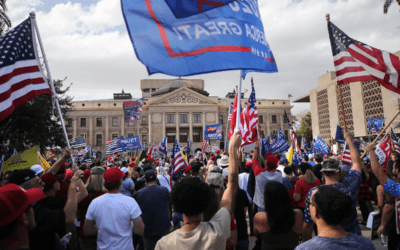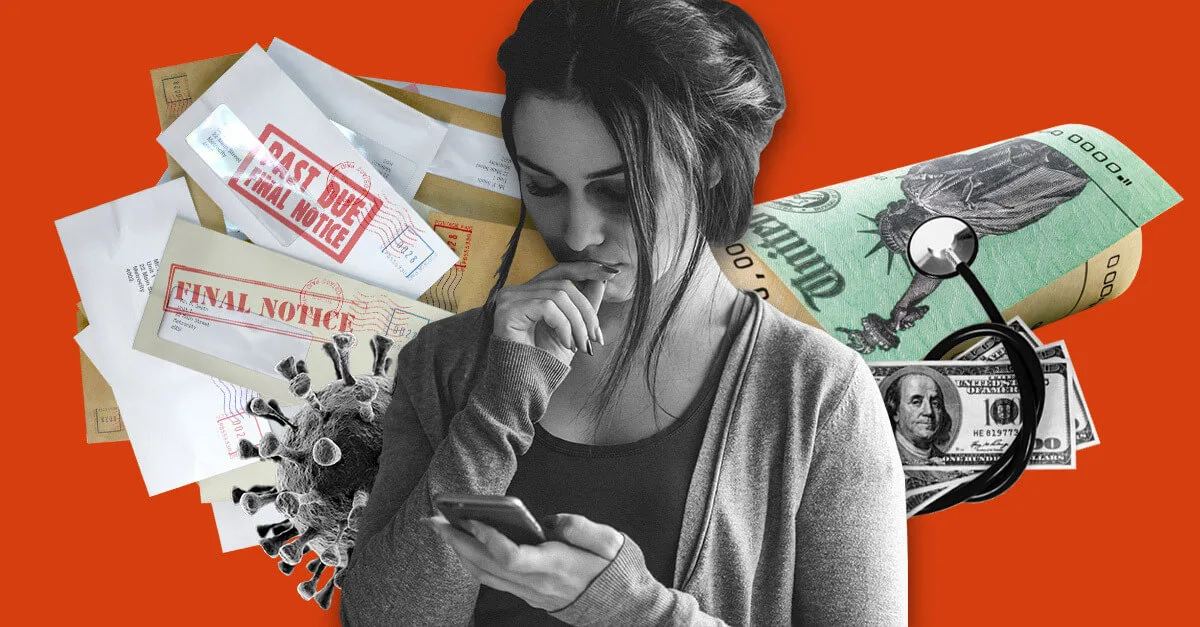
“I have to let myself die, because I can’t afford to pay for my health insurance.”
*This is part one in a series exploring how Arizona’s unemployment system was impacted by the COVID-19 pandemic. Read the full series here.
In August, Gov. Doug Ducey praised the state of unemployment in Arizona, saying the state is doing the best it can to distribute money to those in need during the COVID-19 pandemic.
But the reality for many Arizonans is dire. Many laid-off workers struggled to be approved for the benefits in the first place, sometimes waiting months for the first check to come through.
And many who did receive their checks relied heavily on the federal government’s additional $600 weekly payment. Now that that’s gone, and President Donald Trump’s additional $300 per week is set to run out, people will be left with only $240 from the state each week—for some Arizonans, adding up to less than their monthly rent.
Other people, especially those living out of state but needing to file in Arizona for various reasons, have fought with the Arizona Department of Economic Security (DES) to hold on to their money. The agency has struggled to deal with fraudulent claims, sweeping up many legitimate people in their crackdowns.
All of these problems have left many Arizonans feeling scared and hopeless during a time of global anxiety. Here are some of their stories:
Trouble Getting Unemployment
Starcia Harris is a former city bus driver who has struggled with Arizona’s unemployment process.
She waited months before finally seeing money in June. She said “it’s like an eight-hour job trying to get through” DES for help.
Filling out unemployment forms can be confusing, especially during the pandemic when new programs like Pandemic Unemployment Assistance (PUA) and Pandemic Emergency Unemployment Compensation (PEUC) were created to fill gaps.
PUA allows workers who wouldn’t normally qualify for unemployment, like independent contractors, to receive benefits, while PEUC allows people who already exhausted their 26 weeks of benefits to extend them another 13 weeks. Even though these programs were approved by the Coronavirus Aid, Response, and Economic Security (CARES) Act in late March, Arizona didn’t implement them until mid-May and early June, respectively.
As of Sept. 5, nearly 389,000 Arizonans were receiving regular unemployment benefits while more than 965,000 were receiving PUA. The DES dashboard doesn’t include a number specific to PEUC. Before the pandemic, the state typically received around 3,000 initial unemployment claims this week and less than 20,000 continued claims.
RELATED: The Hell That Is Trying to Get an Unemployment Extension in Arizona
Even though DES representatives are supposed to be available by phone to answer questions and help applicants resolve any issues, actually reaching them has proven to be difficult.
John S., who asked not to use his full name for fear of retribution from DES, said that, “it takes at least a week of nonstop calling people to get through to someone.”
“I’ve probably been able to get through seven times in two and a half months,” he added.
And Harris added that when she did get through, it wasn’t always the help she’d hoped for. “When I talked to reps, I got a lot of, they know what we know,” she said. “Whatever’s on the website, that’s what the reps know and that’s it.”
All of the difficulties have led to the creation of multiple Facebook groups, where applicants can go to find answers and brainstorm ways to get issues resolved and their claims approved. The groups aren’t led by DES employees—just regular people who wanted to find solutions.
“Arizona really needs to step it up because this has been a mess,” Harris said.
Not Enough Money
Lucia Salinas, who has worked as a cook for 16 years, is now only getting 12 hours per week at work. She relies on benefits to make up for the gaps, but it’s not enough.
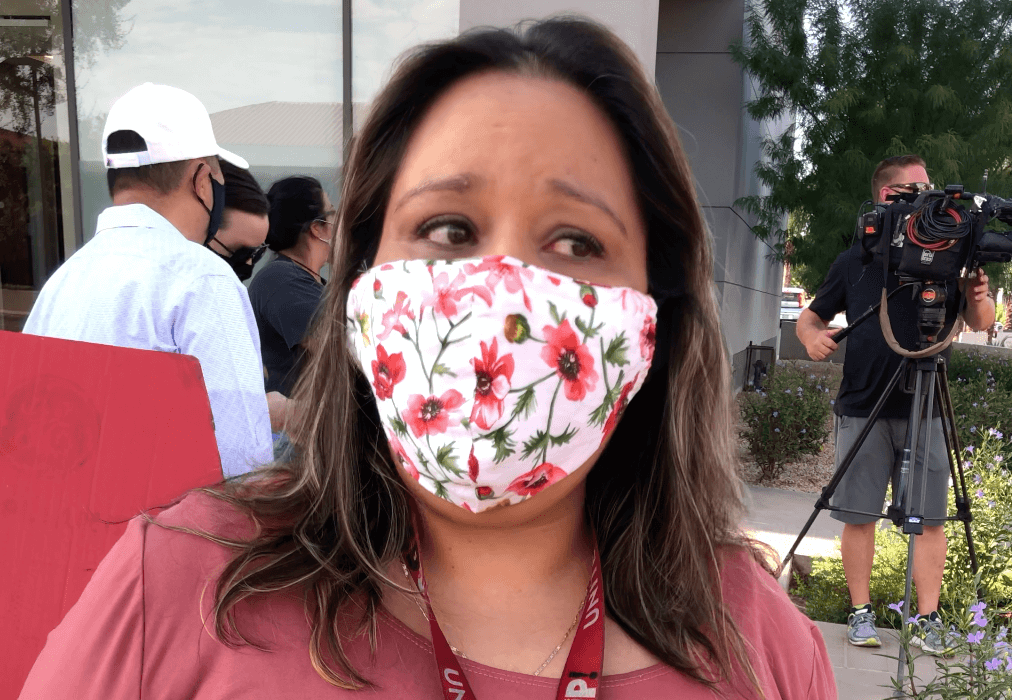
“I got laid off in March this year, and it took me like two and a half months to get unemployment,” she said. “Never in my life have I had to go to the alleys and look for metal to sell. I feel homeless, and that makes me mad. I’m a hard worker. I never ask for nothing.”
Salinas is one of many Arizonans scrambling to figure out what to do now that pandemic help is running out.
The extra $600 weekly compensation provided by the federal government through the CARES Act ran out at the end of July, and Congress let it expire without any follow-up solutions.
President Trump’s executive order offered $300 more per week, but that money is quickly coming to an end.
This leaves Arizonans whose jobs have not returned to normal—many businesses permanently closed, are still temporarily closed, or have had to cut staff and hours—to live on the normal state payment of $240 per week.
For many, that $960 monthly doesn’t add up to their rent bill, much less utilities, food, gas, and other costs.
In fact, the current unemployment payment comes out to be $6 per hour, assuming a 40-hour work week. To afford rent for a one-bedroom apartment in Arizona, a person needs to be making $16.97 per hour, according to the National Low Income Housing Coalition. And in Maricopa County, that amount is $18.42 per hour.
For Laura Perez, a former server, the decrease in money has led to daily worries.
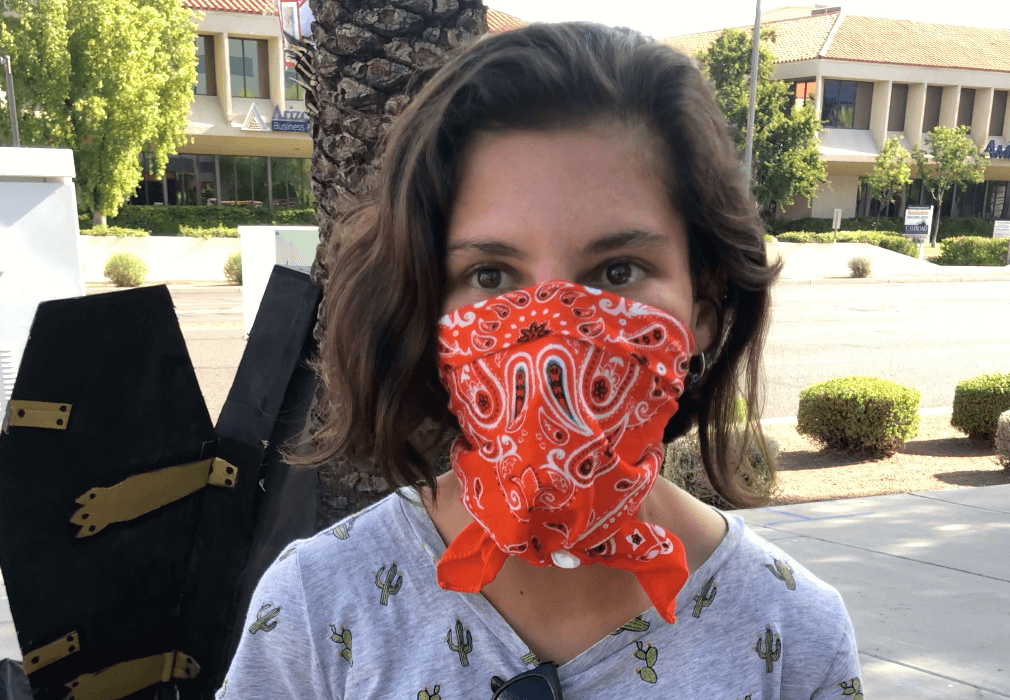
“That’s a significant drop in my income. Even on my most bare-bones budget,” she said. “My rent is $500 a month. That only leaves me $300 for electricity––that was $150 this month––and water. And, I just moved, so I had to pay $150 deposit. That’s all the money. If this is projected to go another two weeks, my entire budget is gone for the next month, really. So it’s really a huge financial burden. I have savings, so I’m just using that, hoping to be able to pay for everything.”
And for Maria Rios, who worked as a prep cook for 18 years, the money is a matter of life and death.
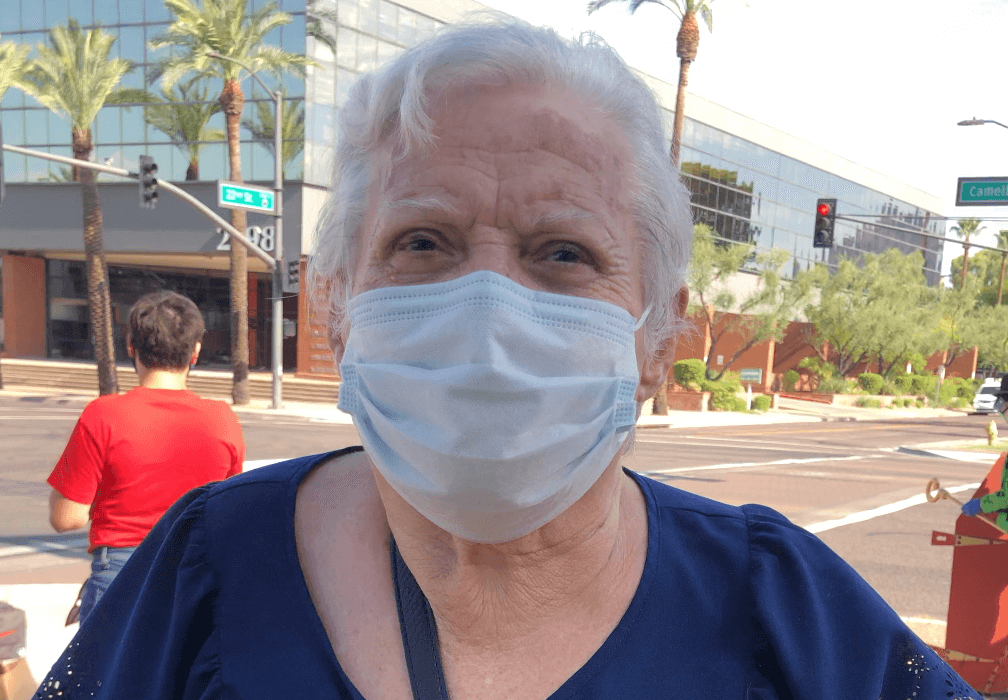
Rios, who has cancer, lost her health insurance when she lost her job, and is now stuck with a $1,200 monthly healthcare bill.
“I have to let myself die, because I can’t afford to pay for my health insurance,” she said. “That’s why I loved the job that I had because it provided my great health insurance. And now that I have to pay out-of-pocket, I can’t, so I have to let myself die.”
Misidentifying Fraud
Some people were able to breathe a sigh of relief when their unemployment checks started coming through, only to have it yanked out from under them.
As part of a fraud investigation, DES canceled 28,000 bank accounts (where unemployment funds were direct deposited) in mid-July.
But many people spoke up saying they are legitimate claimants who had thousands of dollars taken away for no reason.
Sean Brady fought for two months to receive his two months of unemployment backpay. Then he woke up one Saturday morning to find over $5,000 in his account wiped clean.
“That was my security blanket,” Brady told The Copper Courier. “If the COVID thing hits again, OK, I had this money saved up, this is my security.”
“It’s ridiculous, how could [the state] even allow this to happen?” he added.
RELATED: They Finally Managed to Get Unemployment. Then the Money Was Wiped From Their Accounts.
Michelle and Esther, who asked not to use their last names for privacy reasons, also had their accounts reset to zero.
“It sucks,” Michelle said. “It leaves the family in limbo, not knowing what’s going to happen.”
“That was the only relief we have right now,” Esther said.
While DES officials have said the agency has been working to identify legitimate claims and return the money, some are still waiting.
Brady said last week he has been in communication with DES workers, but still has not been given an idea of when he’ll get his thousands back.
“[I have] peace of mind that eventually a check will show up here but still disappointed nonetheless,” he said.
Support Our Cause
Thank you for taking the time to read our work. Before you go, we hope you'll consider supporting our values-driven journalism, which has always strived to make clear what's really at stake for Arizonans and our future.
Since day one, our goal here at The Copper Courier has always been to empower people across the state with fact-based news and information. We believe that when people are armed with knowledge about what's happening in their local, state, and federal governments—including who is working on their behalf and who is actively trying to block efforts aimed at improving the daily lives of Arizona families—they will be inspired to become civically engaged.


He said what? 10 things to know about RFK Jr.
The Kennedy family has long been considered “Democratic royalty.” But Robert F. Kennedy, Jr.—son of Robert F. Kennedy, who was assassinated while...

Here’s everything you need to know about this month’s Mercury retrograde
Does everything in your life feel a little more chaotic than usual? Or do you feel like misunderstandings are cropping up more frequently than they...

Arizona expects to be back at the center of election attacks. Its officials are going on offense
Republican Richer and Democrat Fontes are taking more aggressive steps than ever to rebuild trust with voters, knock down disinformation, and...

George Santos’ former treasurer running attack ads in Arizona with Dem-sounding PAC name
An unregistered, Republican-run political action committee from Texas with a deceptively Democratic name and ties to disgraced US Rep. George Santos...





